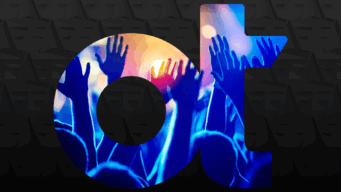“We can’t eat there”, my wife says, as I ask where we should grab some lunch. When I ask why, she says that they have been in the news for not fairly treating women in the workplace. In this scenario, that restaurant’s bottom line just took a hit because of an ethically minded consumer.
The ethically minded consumer is exercising more and more control over their spending and buying power. But it’s not just the Millennials who are purchasing from a socially and environmentally conscious standpoint these days. These decisions are happening at all ages now and they are having a measurable impact on your business.
Whether it’s an ethical supply chain, fair-trade goods, child labor, or sustainability programs, your company’s ethical practices are now exposed to your customer at an unprecedented level. Our world is fully connected and it takes just one public issue to gain the full attention of your customers. If you don’t have visibility into your supply chain, and even the nth tier partners, your company could be at risk.
These days, we are seeing this kind of social boycotting taking place in every industry, but the greatest impact has been on Retail and Consumer Packaged Goods (CPG). This is happening primarily due to the rise of social media. Price is no longer the main factor for consumers contemplating buying your product versus your competitors’. In fact, 70% of Millennials and 56% of all consumers consider the reputation of the company producing the product at the time of purchase.
On the flip side, consumers are willing to pay more for products that they feel are contributing to a better world. 90% of Millennials say they are willing to pay more for products that are made with sustainable or organic ingredients, yet stores are still hovering around 20-25% of their products on the shelf being deemed “sustainable”. This is truly evidence of a penalty/reward-based buying mentality, where consumers go out of their way not to purchase certain items and are willing to seek out and pay more for the items that do meet their social and environmental expectations at both the product and brand level. This means there is not only an incentive to avoid negative exposure, but also the opportunity to recoup lost sales at a premium price if you appeal to the ethically minded consumer.
So, how do you protect your company? The easiest way is to simply operate ethically and with the environment in mind. In fact, a growing number of new companies are using their ethical practices as a means to develop a dedicated customer base. Unfortunately, this is easier said than done in an era of global sourcing. Even if you know your company is operating ethically, do you know how your partners are operating?
Many companies manage this risk by doing customized, deep dive audits on the practices and performance of their partners and suppliers, but given the effort and challenges, this can’t be done for every aspect of the supply chain, leaving holes for exposure.
Businesses need help to get ahead of the problem, and they need better tools to qualify partners before they begin doing business with them. We are seeing an emergence of watchdog organizations and companies that aggregate partner performance, practices, and certifications to make it easier to establish and operate an ethical supply chain.
For more information on how OpenText™ helps businesses operate an ethical supply chain, please visit our website.



